Understanding carrier liability vs cargo insurance is crucial for anyone that has to move freight. While both have to do with shipping freight and covering issues that may take place, shippers should understand the ins and outs of both. This knowledge will ensure your business uses the right type for its needs. Take a look at both of these terms and what they mean for shippers and carriers.
Carrier liability and cargo insurance are legal structures meant to protect the carrier and the shipper when cargo is damaged or lost during transit. Each offers compensation but may measure the value of a shipment differently. Coverage value may vary based on an item’s worth and potential profit loss faced by the shipper.
Learn the difference between carrier liability vs cargo insurance and how to best determine which is best for your shipment.
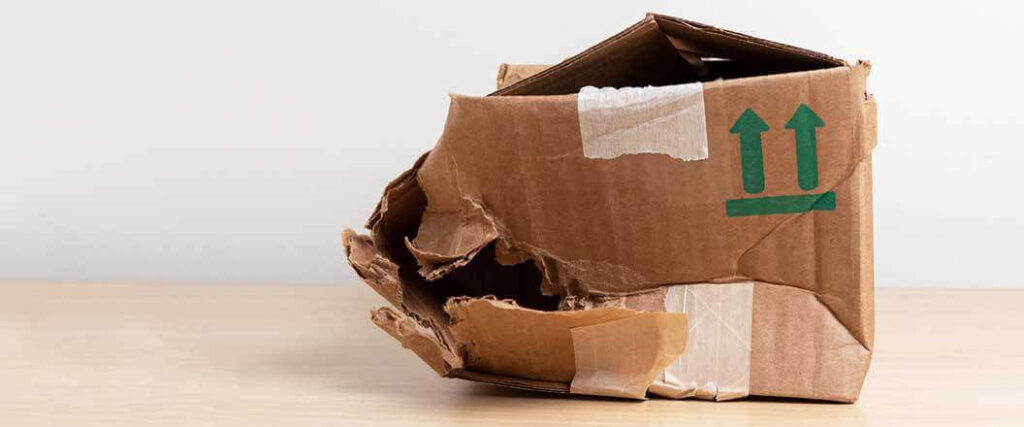
To understand this term, we need to split it up. Firstly, what is a carrier? A carrier is a company that transports your shipment from origin to destination. They’re in charge of getting everything in order and ensuring your goods arrive at their final destination. Having liability means being legally responsible for something.
Consequently, carrier liability refers to the level at which a freight carrier is responsible for damages, losses, or delays in a shipment.
Some may refer to this as carrier liability insurance, but in reality, liability and insurance are not the same. This is because carrier liability usually only covers up to a certain point - usually much less than the total value of goods being shipped.
What’s more, there are some things that liability coverage doesn’t protect against:
Depending on the carrier, other things that may not be covered by liability are concealed damages. If the box is fine, but the items inside are not, the shipper takes the loss. While some carrier policies indicate that items should be photographed before transport - opening every box to take a picture is a logistical impossibility. Most pictures will simply be of the boxes themselves.
If goods are damaged while being shipped, then it could be the carrier’s fault. Having said that, some specific parameters and conditions must be met for a carrier to be legally and financially responsible for the damage.
Legally speaking, a carrier is liable for loss or damage to cargo caused by fault or neglect on their end. This comes from Section 275 of the Maritime Code.
Most cargo damage gets caused by insufficient or poor-quality packaging. You, as a shipper, have to prove that faulty packaging isn’t a factor in the damage. If you’re transporting fragile items and don’t pack the boxes with bubble wrap or protective packaging, they may move during transit and break. In instances like this, you will be liable for the damages because you can’t prove that it was carrier neglect.
However, if you have evidence that fragile items were packaged correctly, perhaps with multiple protective measures, then you might qualify for compensation from the carrier. The key is to have evidence. If you packed everything right but never got a photo, you might still be on the hook for the damages.
Of course, if a surveillance video or similar pops up that shows workers tossing your clearly marked fragile contents box in the truck with no regard for placement - that could get you a win too.
In essence, you have to prove that you did everything by the book on your end.
When you’re looking to establish a long-term relationship with a carrier or 3PL, it’s important to understand what their liability coverage is. It’s better to know what to expect at the beginning instead of being surprised when something goes wrong.
Working with a reputable carrier that has a history of safe and damage-free delivery is important. Your chosen 3PL should be properly vetting companies to ensure high-quality service.

Damaged goods aren’t the only issue to be worried about when shipping freight. There’s also the problem of delays. Your business runs on a tight schedule, and you expect things to arrive at certain times. In the case of manufacturing deadlines and order fulfillment, a delay can be extremely impactful.
The historic delays caused by bottlenecks in the global supply chain have proved to everyone just how impactful some delays can be. At the end of the day, time is money, and no products mean no profits.
With that in mind, does carrier liability cover delayed shipments? The short answer is yes but, as you can imagine, things are a bit more complicated than that.
Essentially, the same rules apply here as with damaged goods. The carrier is responsible if it can be proven that the delay to your shipment was due to a preventable act during the period the carrier held your goods. In simple terms, if you can prove the delay was down to them, then you’ll likely be covered.
Again, there are a few things to bear in mind. The Act of God clause still applies; a mudslide on a highway is not the carrier’s fault. Additionally, delays due to worker shortages and mandatory or company policy lockdowns are also excluded. These factors have become an unfortunate norm in many aspects of supply chain logistics.
Carrier liability for delayed shipments also won’t cover things like piracy or wars. If trucks are stopped by law enforcement officers for a routine check - and this results in a delay - then it won’t be their fault either.
In short, while there is a possibility that you can be compensated for delays - the various issues created by the Covid-19 pandemic have forever changed the timetable for such situations.
Carrier liability is limited to a specific amount normally set by the carrier. The current industry standard for truckload carrier liability is $100,000. Any shipments exceeding that amount are considered high-value shipments.
If you suffer losses that exceed this figure, referred to as the limit of liability, then the carrier won’t have to pay the difference. You do have the option of purchasing shipping insurance to cover the additional cost of your goods in case of loss or damage.
Also, realize that the liability coverage payout is not based on the value of your cargo, but on its weight. Again, this is a standard practice among most truckload carriers in the United States. At the moment, the standard payout value is 50¢ per pound.
This also means that a cargo’s legal liability limit is almost always going to be less than its actual value. This holds true whether you are shipping via rail, truck, vessel, or air.
Consider this scenario. You are shipping $200,000 worth of perfume and beauty supplies. The entire shipment might weigh 5,000 pounds. Assuming that the carrier was proven to be at fault for a complete shipment loss, your compensation based on carrier liability would be $2,500, only 1.2% of the total value of your original shipment.
| Shipment Value | Weight of Damaged Goods | Shipper Compensation |
| $50,000 | 6,000 | $3,000 |
| $200,000 | 5,000 | $2,500 |
Even on a shipment of lower value, liability compensation is not going to recover a significant amount of your good’s value. This is because carrier liability is really only meant to compensate you for the shipping cost, not for the goods themselves.
Note that this is specific to truckload carriers. For those who are transporting by vessel, air, or rail carriers, there are slightly different liability rules.
These liabilities may be determined based on specific international laws.
In short, carrier liability has its limits depending on the content of your shipment and where it’s located. You should also remember that relying solely on carrier liability is not going to provide you with significant compensation when things go wrong.
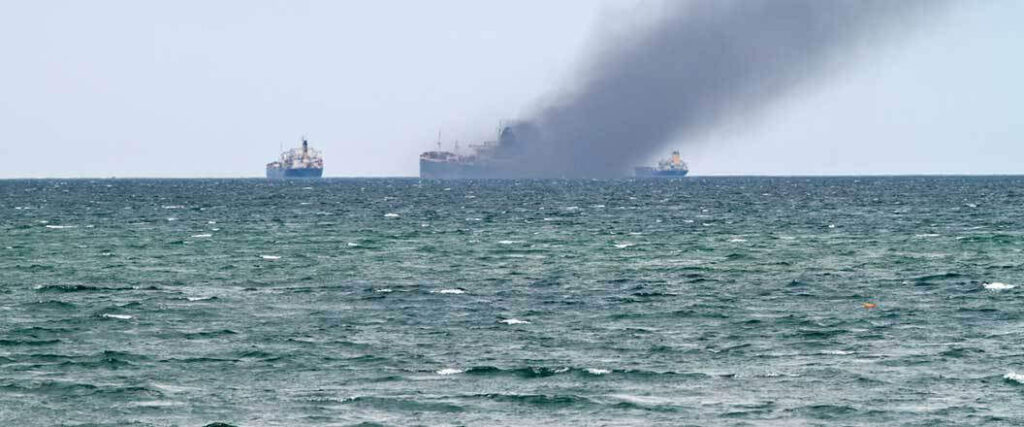
Generally speaking, carrier liability begins as soon as goods are loaded onto a vehicle for shipment. At that point, both you and the carrier have agreed on the terms of the contract, and they are effectively accepting liability for the goods.
Any further specific terms of the carrier’s liability will be included within the shipping contract. This contract is signed and agreed upon by all parties involved before a shipment takes place.
Obviously, carrier liability has to end at some point and thankfully, it’s relatively straightforward. The responsibility the carrier has over your goods will end as soon as the shipment is delivered to its final destination.
At that point, they’re no longer at fault for anything that happens to your goods. If goods are discovered to be damaged when boxes are opened, a claim will need to be filed. The Free-on-Board (FOB) shipping terms will determine if the shipper or receiver is responsible for filing the claim. There are different variations of FOB shipping terms that determine who owns the goods at specific points of the shipping process.
There are different variations of each agreement. In terms of carrier liability and insurance, these should be clarified before shipments take place. This is especially important when it comes to high-value cargo.
The Carmack Amendment is a crucial law regarding motor carriers and shippers, laying out how to govern interstate shipments according to a national standard. Carmack has gone through several revisions, but it continues to be upheld and supersedes any state or common law claims.
Primarily, it details the duties, responsibilities, and rights of shippers and carriers when dealing with the loss of cargo. Under Carmack, the carrier is deemed liable for damages to the goods it transported, even if the shipper doesn’t have proof of neglect.
However, the shipper does need to prove that the merchandise was in good condition before shipping. This means ensuring the following:
If all of this is done, then the carrier will be liable for damages. Of course, they also have the right to defend themselves and provide additional evidence to prove neglect was not a factor.
This could also include any of these five exceptions.
The Carmack Amendment is in place to ensure that the right party is held responsible for any cargo loss or damages. If it's found that any of the five exceptions took place, then the carrier won’t be liable for damages to freight.
Be aware, that although state and common law claims must submit to the greater authority of the Carmack Amendment, a legal contract can either extend or disregard any of the provisions. Be sure to read the fine print of any and all agreements made with your chosen carrier.
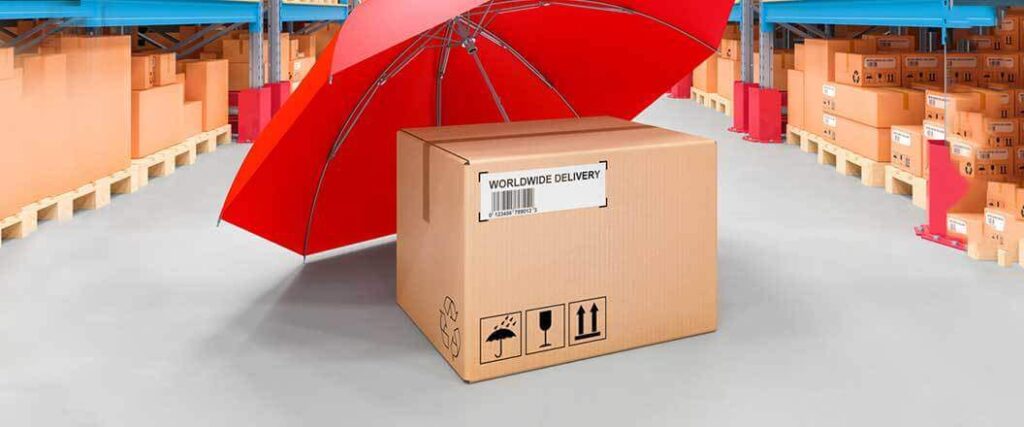
Hopefully, you have realized that carrier liability has more to do with protecting the carrier than protecting your cargo. This is why the majority of carriers offer cargo insurance to their clients. They want to be able to protect your cargo in a way that benefits both parties.
Cargo insurance will protect your investment if your goods are lost or damaged during transportation with less consideration for specific faults.
With regards to carrier liability vs cargo insurance, the key difference is that all carriers are legally required to carry a minimum amount of insurance, but shippers are not required to have any minimum of cargo insurance by law.
Using cargo insurance offers more comprehensive coverage against damages or losses. The cost of your insurance may depend on the value of your goods, desired level of coverage, and other factors.
Although not legally required, It’s almost always recommended to purchase cargo insurance for freight shipments. This is because carrier liability won’t cover the full cost of goods in case of loss or damage and exceptions to this rule are few and far between.
In the case of high-value shipments, there may be some carriers who refuse to transport certain items unless cargo insurance is provided.
It’s likely that in doing some research you’ve come across the term freight insurance. Is this any different from cargo insurance? If so, what are the differences?
Fundamentally, they’re the exact same thing. Both terms are used to describe a type of insurance that protects your goods from damage or loss during transportation.
The only difference is in how these terms are used, and what they primarily describe:
Many freight companies and insurance providers will often use the terms interchangeably. In terms of legal proceedings, either term is acceptable.
Since cargo insurance technically refers to goods transported by more than just truckload, there are a few different method-specific types. Each method of transport counts as its own type - land, air, and ocean.
There are slightly different dangers as well as different methods for each. If you looking into expanding your business and need to ship internationally, it's handy to learn what makes each one unique.
Sometimes referred to as Hauler Insurance, this gives you coverage for all transportation that takes place over land. This includes transportation via trucks and rail.
Normally, this type of cargo insurance covers you in cases of theft, damages, and various other risks. Land cargo insurance usually only covers the boundaries of the country you’re from. If you are shipping freight from Kansas to California, your shipments are covered. The same goods may not be covered if you need to cross into Canada or Mexico.
Speak with your carrier directly or your partner 3PL to make sure you have an insurance policy that covers international shipments if transporting outside of the U.S.
This insurance covers all instances of shipping by sea and it can include air freight shipping too. By definition, it covers goods transported over water. In this instance, you’re protected from damages that occur through loading/unloading of the cargo, weather issues, and even volcanic eruptions.
Since there is a multitude of different risks, there are actually three common levels of marine cargo insurance simply designated as A, B, and C. Level A coverage will be the most comprehensive and even protect the value of your shipment in case of vandalism or piracy.
Unlike land cargo insurance, marine cargo insurance is designed with international borders in mind.
Not every insurance policy is created equal. There are different types of cargo insurance coverage relating to all types of transportation, and you can select certain policies depending on your needs.
Most of the time, you’ll be met with the following two types:
If you’re unsure what type of cargo insurance might be best for your shipment, it’s worthwhile to speak to your freight carrier or 3PL. Many freight companies offer insurance options and can advise on the best option based on the specific details of your shipping situation.
Some companies provide All Risk Insurance Policies as part of their standard quote in an effort to offer your shipments the best protection possible.
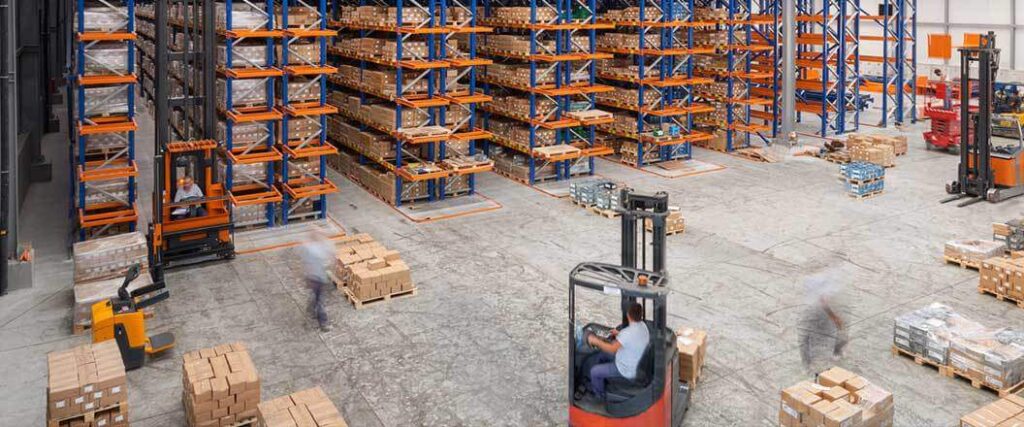
Unlike carrier liability, cargo insurance isn’t automatically tacked onto your shipments. It’s optional, so you have to figure out whether or not you need it. Your main concern is money. Do you really need to spend extra money protecting your goods if there’s already a level of liability attached to the carrier?
Most carriers will say yes - they have transported enough cargo to know exactly how often things can go wrong. Your business relies on the goods that are transported.
If goods don’t reach their destination in excellent condition, then it’s a problem for your company. It can lead to disgruntled customers, missed production deadlines, and more. Financially, you can take a significant hit when something like this happens and you don’t have insurance.
Because the truth is that damage to cargo is always a when not an if.
Carrier liability won’t cover you in every situation. Unless you can clearly prove that the carrier is at fault, then you won’t end up with any compensation. Even the best carriers and most experienced drivers and warehouse workers can have a bad day.
Liability claims can often take quite a bit of time to be resolved, too. You may not be covered up to the value of your shipment even if a fault with the carrier is found; therefore, you stand to lose a lot of money.
The fact is that anything can happen during the transportation of goods. Whether it’s by land, air, or sea, anything can happen that causes problems for your items. A freak storm can blow over a truck and destroy your cargo.
If you don’t have cargo insurance, then you’re not protected in these events. You’ll end up with nothing, and your business will suffer.
In short, if a partial or complete loss of your freight will result in a significant negative consequence for your business, cargo insurance is strongly recommended.
Clearly, there are some key benefits to having cargo insurance - especially from the carrier liability vs cargo insurance perspective. If you’re still wondering what you’ll gain from this type of insurance, let’s itemize a few key points. .
With all that in mind, cargo insurance for your freight shipments is a no-brainer in nearly all shipping situations.
Cargo insurance can be bought online from a number of insurance brokers. It’s vital that you conduct research before choosing a plan. Most freight companies offer in-house cargo insurance. This is usually arranged through a direct partnership with a third-party insurance provider.
In most cases, the cargo insurance offered by freight companies is suitable. The convenience offered by not having to make a separate contact and purchase is a benefit of buying insurance through a carrier. Of course, it’s still important to confirm the details of any cargo insurance before purchasing.
When you speak to the insurance brokers about a quote, they’ll often ask you if you want single or open coverage.
Whichever one you determine is best for your shipping needs, make sure you closely look at the terms and conditions of the policy. Cost and coverage will vary based on your commodities and shipping habits. Single coverage insurance may end up being more expensive if you are shipping something very valuable, versus someone who gets open coverage on a low-cost/low-risk item.
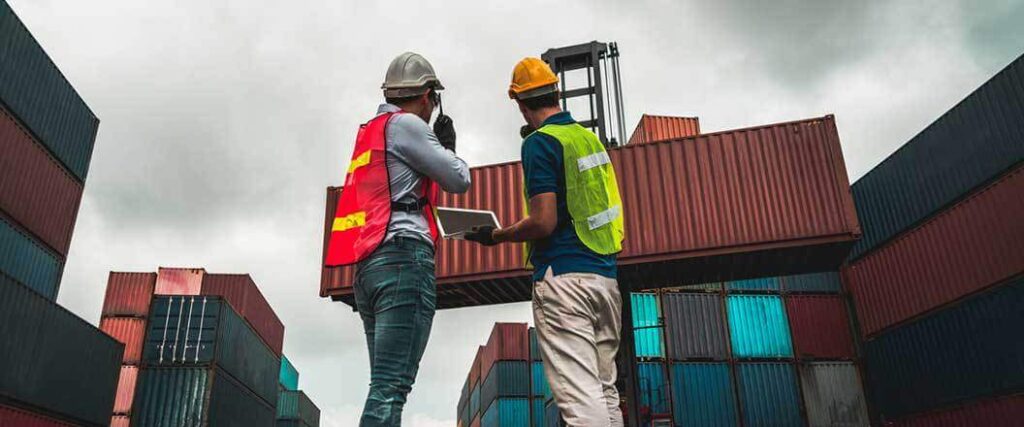
Once you decide that you need cargo insurance and have narrowed down which type of policy is best, price becomes a factor.
The cost of cargo insurance will vary depending on a few factors:
Consequently, it’s hard to give definitive figures that tell you how much it costs to buy cargo insurance. However, we can show you a few estimated figures that give an idea for how much you’ll have to pay.
On average, it can cost between $180 and $2,000 for an annual cargo insurance policy. If you want to get a single cargo insurance policy, then you’re looking at around $30 - $150 per shipment. When we look at the different shipping methods, we can see a difference in the estimated costs:
| Type of Insurance | Price Range Estimate |
| Air Cargo | $300 - $520 |
| Marine Cargo | $180 - $300 |
| Land Cargo | $400 - $700 |
As the risk of damage goes up, so too does the cost. Truckload shipping over land may be the most common way of moving cargo, but it’s also the one most at risk. The chances of an accident on a highway are far greater than a plane crash landing or a container ship catching fire (as an example)
You also have to take other things into account, mainly the value of your shipment. This will determine the limits of your policy.
For example, if you’re shipping goods that are around $50K in value, then you only need a policy that covers up to that amount. For goods worth $200K, then you have to pay extra to increase your limit. This is usually the main factor that increases or decreases your quote.
More information on high value cargo transport is available for any shipments you have that exceed $100,000.
Additionally, your level of risk and loss history come into play too. Some shipments present more risks than others - such as very fragile items - which may raise your insurance premium. If you have a history of making cargo insurance claims or suffering from cargo damages/losses, then expect a higher premium.
Cargo insurance covers a lot of possibilities and risks, but it won’t cover everything. Unless you request a type of coverage specifically, many companies won’t provide it for very rare or very costly circumstances.
The following are common exclusions you will face when using cargo insurance.
It’s worth noting that some modes of transport can be excluded from your policy. For instance, your insurance may cover trucks or air travel, but not water. These exclusions are common but not set in stone. You can get insurance coverage for nearly everything, including items from the list above, but it will raise your insurance premiums.
Again, double-check with your provider to make sure that your desired modes of transport are covered. This is crucial for any businesses that may use multiple shipping methods.
Make sure you are informing your carrier of the nature of the cargo as well. This way, if there is an exclusion specific to your goods, you can find out beforehand and take the necessary steps to either secure the load or purchase additional coverage.

If you have cargo insurance, and something goes wrong - leading to damaged goods or losses - then you need to file a claim. Filing a claim starts the process to help regain your losses and receive compensation through your insurance provider.
The claims process gets confusing for those who have never filed. Be patient and take it step by step to avoid mistakes that create delays.
If your claim meets all the requirements, then you may recover your losses up to the value of your policy limit. Most cargo claims are resolved within 120 days, though there is no specific law that states it.
Should a claim get resolved in that time frame, the carrier is required to regularly notify you of the status until it has been.
At Freight Insurance Coverage, we can automatically have cargo insurance applied to any shipment transported through our carriers and factored into your quote for easy viewing. While many carriers do their best to load and unload freight carefully, accidents can happen at any time.
Cargo insurance will ensure you have the protection you need for your freight. In addition to our insurance coverage, you’ll also have access to a variety of carriers that can ship your freight when you choose us as your 3PL.
Some of the shipping carriers we partner with provide services for:
Need more information? Fill out our contact form or give us a call at (866) 975-0749 to speak to an agent directly.
Freight Insurance Coverage
315 NE 14th Street #4122
Ocala, FL 34470